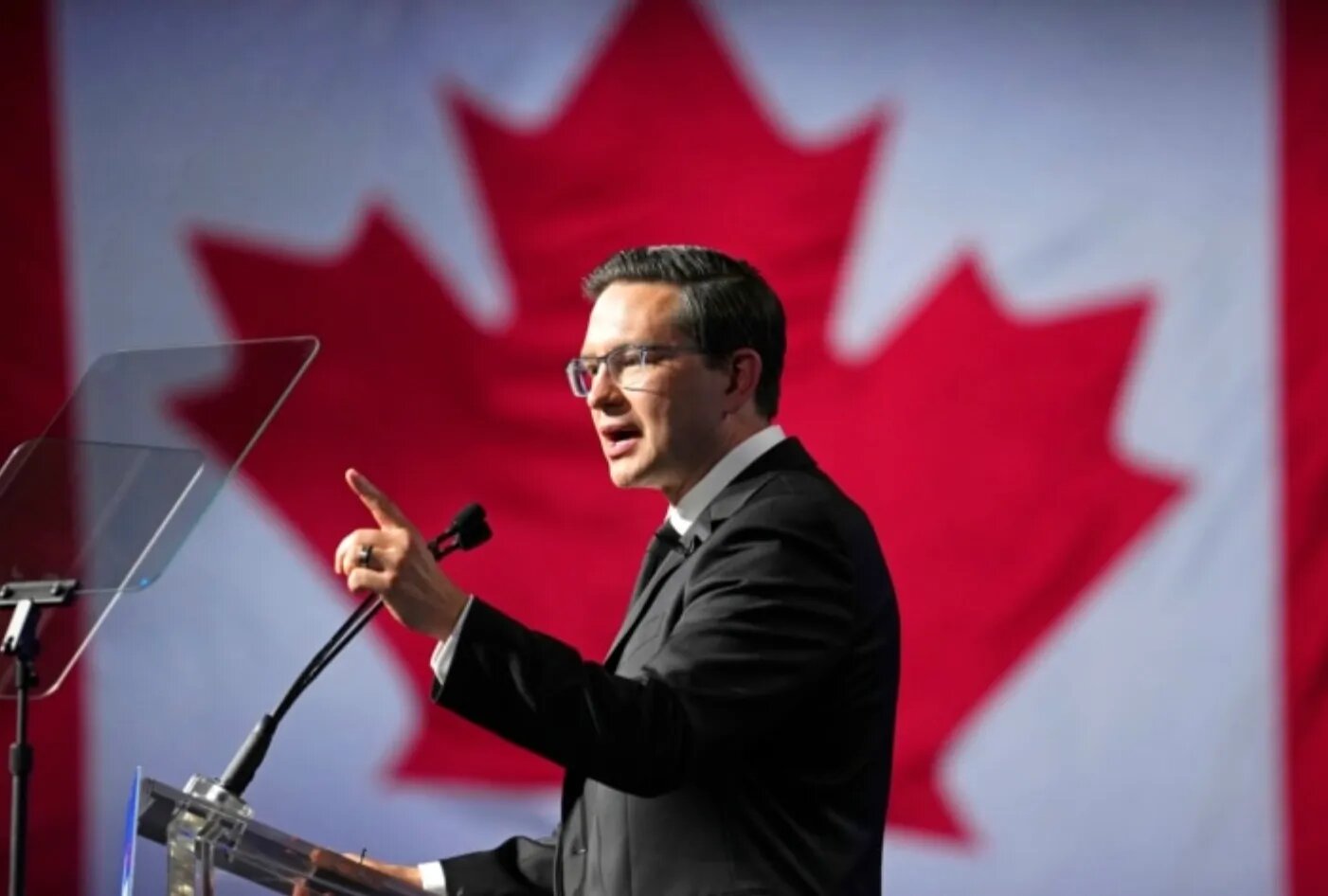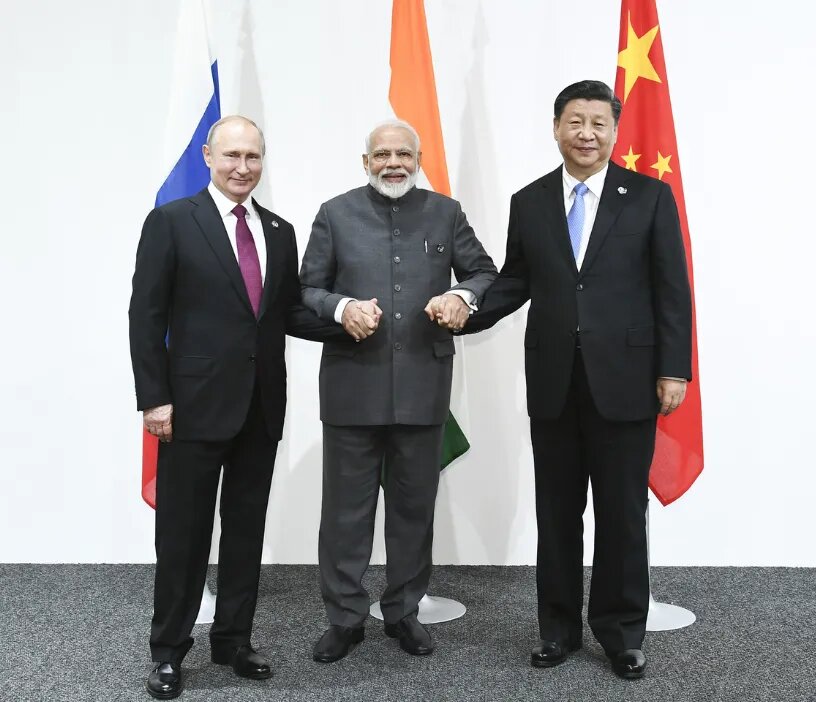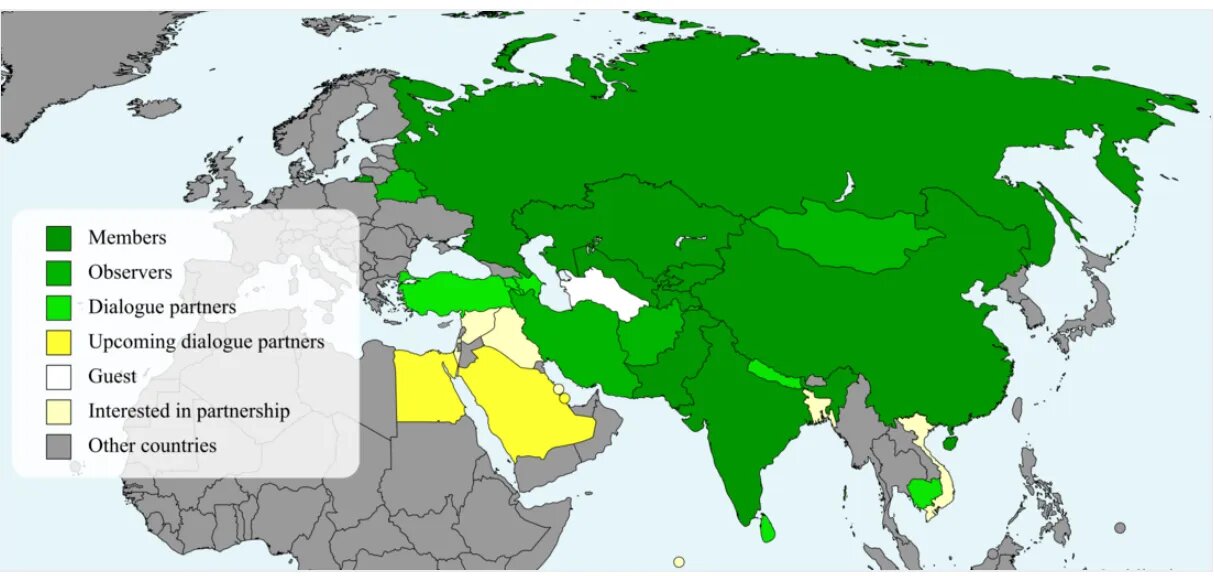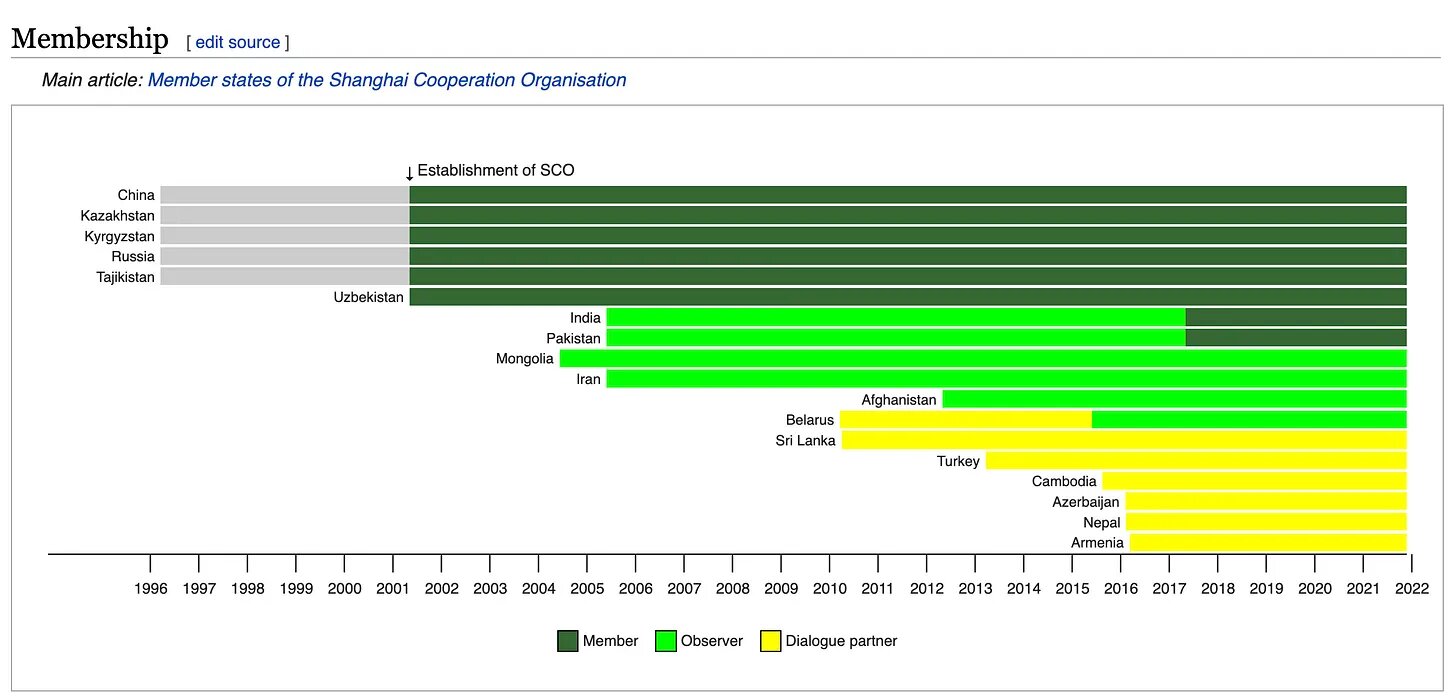VOA Sept 11, 2022
Canada’s opposition Conservative Party elected its go-to attack dog as its new party leader Saturday.
Pierre Poilievre is a firebrand populist who opposes vaccine mandates and blames Canada's inflation on Liberal Prime Minister Justin Trudeau. He won the party leadership on the first ballot, defeating a moderate, centrist candidate with 68% of the votes cast by the party's members.
The 43-year-old Poilievre is a career politician and was a cabinet minister in former Prime Minister Stephen Harper's government. He embraced Canadians who were against vaccine mandates and supported the freedom truck convoy that paralyzed Canada’s capital and blockaded the border with the U.S.
“Tonight begins the journey to replace an old government that costs you more and delivers you less with a new government that puts you first,” Poilievre said. “By tackling Liberal inflation, we will put you back in control of your life and your money.”
Poilievre won the party base, attracted large crowds and signed up thousands of new members.
Nelson Wiseman, a political science professor at the University of Toronto, said an apt U.S. comparison for Poilievre is Republican Sen. Ted Cruz but without the anti-abortion stance.
“He is a right-wing populist,” Wiseman said. “Most Canadians recoil at his populism now, but he’ll moderate some of his positions and soften his language and image. I expect the next election to be about the incumbent, an incumbent with growing political baggage.”
From his victory speech
“There are people in this country who are just hanging on by a thread. They don’t need a government that sneers at them, looks down on them and calls them names. They don’t need a government to run their lives. They need a prime minister who will restore hope. I will be that prime minister.” Pierre Poilievre, Victory speech - Sept, 2022
February Podcast:
“After two years of massive government overreach and a prime minister who insults anyone who disagrees with his heavy-handed approach, Canadians have finally had enough and they’re speaking up,” The vast majority of truckers and their supporters have been peaceful, law-abiding, patriotic people, despite the dishonest propaganda” from the government and media.” Mr. Poilievre - in February on a podcast.
The financial news from Canada is pretty grim:
Bloomberg, Sept 12, 2022
-
Household net worth falls 6.1% amid interest-rate hikes
Canadian households experienced a decline of almost C$1 trillion ($775 billion) in net worth in the second quarter amid plunging prices for homes and stocks.
Sept 12 (Reuters) - The ratio of Canadian household debt-to-income widened to a record 181.7% in the second quarter from a downwardly revised 179.3% in the first quarter, Statistics Canada said on Monday.
National net worth rose by 0.2% in the second quarter to C$17.65 trillion ($13.58 trillion), while national net worth increased to C$455,401 on a per capita basis.
For some reason, few of Germany’s neighbors trust them enough to help them get fuel for the winter…
Bloomberg, Sept 8, 2022
-
Minister skeptical about agreements beyond Denmark, Austria
Hope is dimming in Germany that it will be able clinch more gas solidarity agreements with European Union partners beyond the ones already in place with Denmark and Austria, a potential further hindrance to Berlin’s ability to mitigate the effects of the energy crisis.
Germany’s neighbors Belgium, Luxembourg, the Netherlands and Poland refuse to engage in “constructive negotiations” about such bilateral deals, German Economy Minister Robert Habeck said in a report to lawmakers seen by Bloomberg.
That could exacerbate the gas crunch in Germany “because a substantial building bloc of the EU’s gas crisis resilience in the form of bilateral agreements would not be available,” Habeck said in the paper, which he presented to the Bundestag’s energy and climate committee late Wednesday in Berlin.
MSM, Sept 9, 2022
-
About 800 bakeries in Germany went dark on Thursday as a cry for help over energy costs.
-
Customers had to sit in the dark to eat their sandwiches and pastries, NDR reported.
-
Bakeries are badly affected by the energy crisis as ovens use a lot of power, a guild said.
Hundreds of bakeries in Germany sold their bread and buns in the dark on Thursday in protest over skyrocketing energy costs as Russia turns the screws on supplies of natural gas.
Why let a “little war” get in the way of importing precious metals?
Beyond the headline misdirecting the reader to think that this article is about imports, it is anything but…
Basically, the economic forecasts for Russia are very good and polling shows that Russia loves Putin.
Reuters, Sept 7, 2022
High global energy prices have helped the Kremlin follow through on President Vladimir Putin's pledge in March to reduce poverty and inequality despite crippling Western sanctions and inflation….
"So far, there are no signs that the drop in living standards could lead to unrest," said Alexei Firsov, founder of social studies think tank Platforma.
Russia's current account surplus - the difference in value between exports and imports - more than tripled year-on-year in the first seven months of 2022, to a record $166.6 billion, as revenues soared while sanctions caused imports to plunge…
Putin has ordered 10% rises in pensions and the minimum wage to soften the blow from inflation, while major employers such as No.1 lender Sberbank (SBER.MM) and gas giant Gazprom (GAZP.MM) raised salaries from July. read more
The unemployment rate was 3.9% in June, its lowest since the statistics service started publishing the figure in 1992, according to the Eikon database.
Putin's approval rating was 83% in July, up more than 10 percentage points since the Ukraine campaign started on Feb. 24, according to polling by the independent Levada Centre.
Italy however, is a hot mess.
Washington Examiner, Sept 12, 2022
Between 2009 and 2012, the eurozone experienced a sovereign debt crisis that threatened to tear its monetary union apart.
… A negative feedback loop pushed Greece, Portugal, Ireland, and Cyprus to the brink of a euro exit. Domino effects between Europe’s so-called periphery and core put Spain and Italy at risk as well.
Could such a scenario repeat itself, now that the eurozone has woken up to new major global threats? Post-pandemic stagflation, a currency in free fall against the dollar, and most importantly the fiscal cost (more government borrowing) to protect households and businesses from soaring energy prices all threaten to bring Europe to its knees once more.
Italy could be the starting point for another debt crisis. At 150% of its GDP, Italy’s public debt has reached its highest level on record. The country's economy is being battered by the European Central Bank’s shift to a more restrictive monetary policy to fight inflation…
Until now, Italy has been kept afloat by large-scale European Central Bank purchases of Italian government debt under its Pandemic Emergency Purchase Program. In 2020 and 2021, the ECB bought the entirety of the Italian government’s net debt issuance. Unfortunately for Italy, the ECB’s bond buying under that program has ended as part of the bank’s shift toward a more restrictive monetary policy to deal with Europe’s inflation problem.
Over the past several weeks, Italy’s heightened political uncertainty has led to a large sell-off in its government bonds. Those bonds’ yields approach 4%, more than 2 percentage points higher than German government bond yields. Recognizing that such a sell-off could precipitate another debt crisis, the ECB has introduced a Transmission Protection Instrument. The ECB can again buy large amounts of Italy’s bonds as needed to keep Italian interest rates at a reasonable level. But it can only do so if a number of strict conditions are met…
The political, economic, and energy conditions are ripe for another sovereign debt crisis in the eurozone which could easily spill over into talk of the disintegration of the EU.
Bleeping Computer, Sept 8, 2022
The Armed Forces General Staff agency of Portugal (EMGFA) has suffered a cyberattack that allegedly allowed the theft of classified NATO documents, which are now sold on the dark web.
EMGFA is the government agency responsible for the control, planning, and operations of the armed forces of Portugal.
American cyber-intelligence agents noticed the sale of stolen documents and alerted the U.S. embassy in Lisbon, which in turn warned the Portuguese government about the data breach.
Immediately, a team of experts from the National Security Office (GNS) and Portugal’s national cybersecurity center was dispatched to EMGFA to carry out a complete screening of the body’s entire network.
These sources told the news outlet that the leaked documents are of “extreme gravity,” so their dissemination might cause a crisis with the country’s credibility in the military alliance.
“It was a cyberattack prolonged in time and undetectable, through bots programmed to detect this type of documents, which were later removed in several stages,” stated one of DN’s sources.
The computers used by EMGFA are air-gapped, but the exfiltration used standard non-secure lines. Hence, the first conclusion of the investigation is that the top military body has broken its operational security rules at some point.
As of today, no official statement has been issued by the Portuguese state on the topic, but the pressure for a briefing by the political opposition is rising following DN’s revelations.
Many members of the parliament expressed their surprise today with the news about classified military documents being sold on the internet and the country’s intelligence services failing to detect such a highly critical breach.
This should remind us all that cloud servers, email accounts and data breaches go hand in hand. The best way to keep your secrets safe is to keep them off the net.
In the meantime, since NATA isn’t telling us what got stolen - all we can do is wonder.
This bit of news should make the US government very uncomfortable. This is, if they are paying attention.
CNBC, Sept 08, 2022
-
India’s Prime Minister Narendra Modi said Wednesday that he is keen to boost ties with Russia, even as the country has become an international pariah following its invasion of Ukraine.
-
Modi spoke of a “special partnership” between the two countries and expressed particular interest in bolstering their cooperation on energy and coking coal.
-
Speaking in an online address to the Eastern Economic Forum in Vladivostok, Russia, Modi also called for “diplomacy and dialogue” in ending the war in Ukraine.
A rather unexpected consequence of the Ukraine war, wherein China and India maintained a strategic silence toward Russia when the war initially began, is that each state’s respectively cordial relations with Moscow has become a point of concord. What no one would have predicted was that this unwitting support would lead to the point of China enticing India to coalesce forces. What does this mean for the Russia, India, and China (RIC) trilateral? Will the cooperation flounder or proceed under the aegis of the China-led multilateral organizations like the SCO and BRICS?
This article is long and complex, but worth the read for foreign policy wonks.
What is important is that this analysis clearly documents that the BRIC (Brazil, Russia, India, and China) union and reciprocal trading partnerships continue to grow stronger. And the US government influence throughout the globe continues to wane.
Of interest, the article also discusses the Shanghai Cooperation Organization (SCO), which continues to grow in strength and numbers.
(The) Shanghai Cooperation Organization (SCO) foreign ministers’ meeting in late July, which included China, India, Kazakhstan, Kyrgyzstan, Pakistan, Russia, Tajikistan, and Uzbekistan, People’s Republic of China (PRC) State Councilor and Foreign Minister Wang Yi exhorted member states to uphold the “Shanghai Spirit” of mutual trust, mutual benefit, equality, mutual consultations, diverse civilizations, and the pursuit of common development
Finally, what is the Shanghai Cooperation Organization (SCO)?
The Shanghai Cooperation Organisation (SCO) is a Eurasian political, economic and security organization. In terms of geographic scope and population, it is the world's largest regional organization, covering approximately 60% of the area of Eurasia, 40% of the world population, and more than 30% of global GDP.
The SCO is the successor to the Shanghai Five, a mutual security agreement formed in 1996 between China, Kazakhstan, Kyrgyzstan, Russia, and Tajikistan. On 15 June 2001, the leaders of these nations and Uzbekistan met in Shanghai to announce a new organization with deeper political and economic cooperation; the SCO Charter was signed on 7 July 2002 and entered into force on 19 September 2003. Its membership has since expanded to eight states, with India and Pakistan joining on 9 June 2017. Several countries are engaged as observers or dialogue partners.
The SCO is governed by the Heads of State Council (HSC), its supreme decision-making body, which meets once a year. (Wiki)






